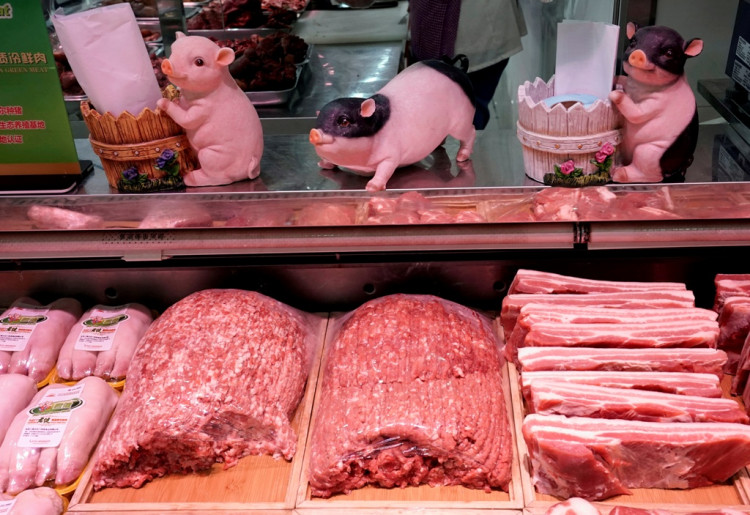Pork prices in China jumped 46.7% year-on-year in August, almost doubling the price hikes in July were prices increase 27% compared to the same period in 2018.
The price hikes were attributed to the African Swine Fever, suspension of pork imports from Canada and the ongoing trade dispute with the United States.
The Ministry of Rural and Agricultural Affairs said the average price of lean, white pork in 16 Chinese provinces was at about $5.13 per kilogram. The price hike was noted between Aug. 26 and Aug. 30. That translated to a price increase of 9.3% compared to previous weeks and as much as 92.3% in the same period last year. The month also marked the lowest pork supply in a decade.
The African Swine Fever which managed to enter the country last year killed as much as 50% of China's pig population. Aside from those that died from ASF, farmers were forced to cull their hogs starting mid-2018 to avoid the strain jumping further from one province to another.
While the virus is only harmless to pigs and could not jump to humans, the majority of Chinese meat products, cold cuts or canned goods, have been banned from local and international markets.
Another factor pushing prices of China pork prices higher and supply lower was China's decision to suspend meat imports from Canada. The suspension took effect on June 25. According to the Canadian Pork Council, Canada has lost nearly $100 million due to the suspension. While the suspension was only meant to be temporary, local meat producers have already been sounding the alarm and calling for the Canadian government to reopen the Chines market.
China suspended imports from Canada when its Customs department discovered a shipment of pork meat products that were technically not produced or processed in Canad. The products were shipped using falsified documents. While the Canadian Food Inspection Agency has remained committed to complying with China's regulations, the latter has yet to decide when to lift the suspension.
Pork supply to China has also been affected by the ongoing China-US trade war. The government imposed a 72% tariff on porks being imported from the United States.
The price hikes and lower supply are happening months before China celebrates some of its most important holidays such as mid-Autumn festival, National Day, New Year's Day, and Spring Festival. Those holidays can double meat consumption in the country where people already accounted for 50% of the world's consumption.
The country is therefore expected to increase imports from Latin and Europe. In the last quarter alone, China had already increased its pig imports from Brazil to as much as 80%. Imports from Spain also increased by 90% in the same period.





